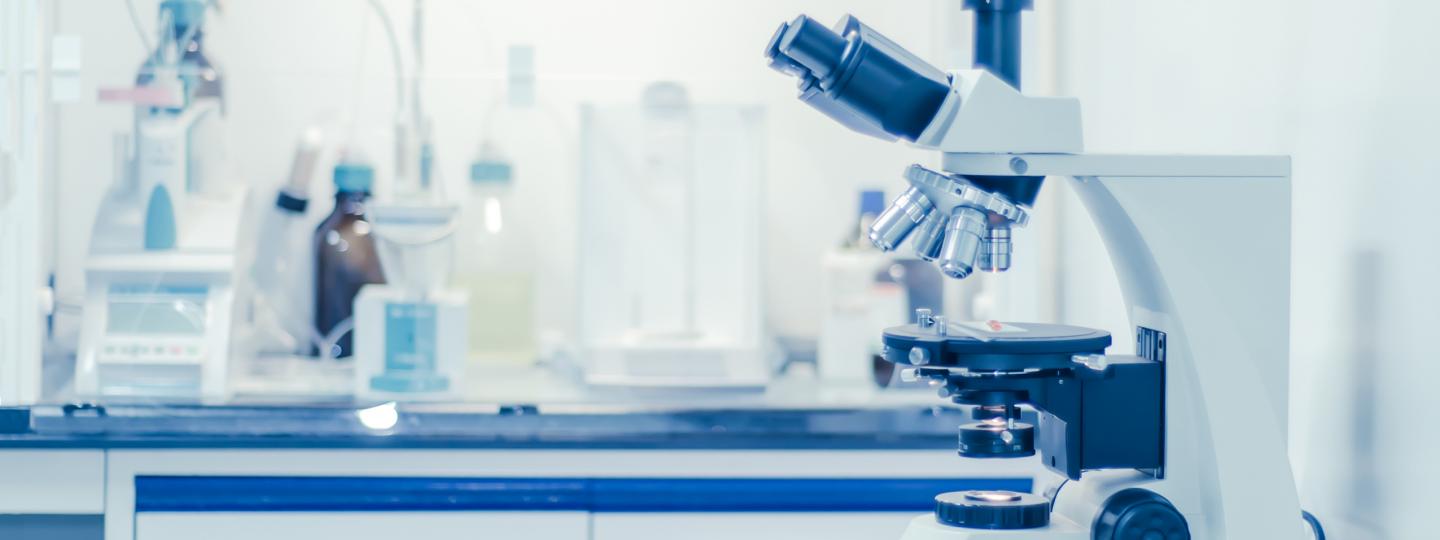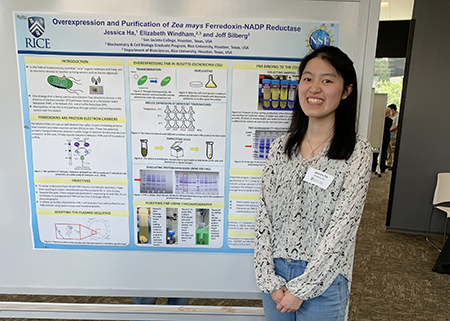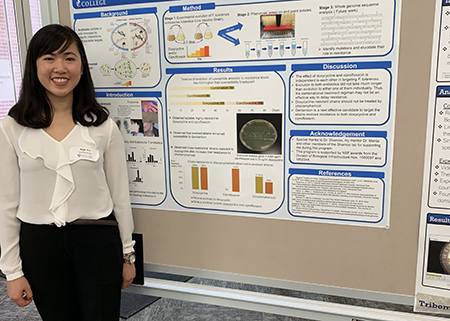Students exchange beach towels for beakers in summer research program

While others had sunbathing on their summer bucket lists, Jessica Ha and Nga "Ana" Vu had petri dishes and pipets on theirs.
This summer, the San Jacinto College students interned in Rice University's Interdisciplinary Program in Multi-scale Biological Networks.
During this Research Experience for Undergraduates, students from across the U.S. don lab coats and unleash the power of microscopes and centrifuges at Rice.
Think ditching summer vacation sounds crazy? Ha and Vu disagree. Not only did a $5,250 stipend sweeten the deal, but the duo engaged in cutting-edge research while rubbing shoulders with Rice grad students.
Made for This
The bionetworks internship was tailor made for the budding researchers.
Ha is pursuing mechanical — and later biomedical — engineering. One day she hopes to create medical devices to help the body.
A science tutor and biochemistry major, Vu wants to attend medical school to become a pediatrician.
Throughout the summer, they spent their days researching under the supervision of graduate students and their nights catching Z's in the dormitories.
During breaks, they enjoyed faculty-led seminars on topics like graduate school applications, responsible research, and STEM career paths.
"It was a big commitment in my summer, but I enjoyed it a lot," Ha said. "I kind of wish it was longer."
Research opportunities included synthetic biology; metabolic, ecological, or naturally-occurring genetic networks; and biomolecular structure, function, and evolution.
Double Take
Ha followed in her sister's footsteps by attending San Jacinto College. Vu, on the other hand, recently moved with her family from Vietnam and is a first-generation college student and English speaker.
Despite different backgrounds, they shared much in common before becoming Rice interns.
Originally honors chemistry lab partners, they both pursued undergraduate research thanks to encouragement from College faculty.
Under the direction of Dr. Laria Redjimi, Vu presented a physics project at the National Conference on Undergraduate Research. In addition, with Dr. Connie Gomez and Dr. Phuong Doan, she and Ha are designing a synthetic arm that could replace three separate ones used for practicing venipuncture, taking pulses, and checking blood pressure.
And finally — call it coincidence — both learned about Rice internship programs and got accepted into bionetworks.
"We knew we had both applied for nano [another internship], but we didn't know we'd both applied for bionetworks," Vu said.
Their joint acceptance is remarkable. According to program director and Rice biochemistry professor Dr. Joff Silberg, the bionetworks acceptance rate rivals that of med school, with only 10-12 students selected from up to 350 applicants nationwide.
"San Jac students are well prepared and poised to excel in research groups," Silberg said.
This summer, San Jacinto College had five Rice interns, including three participants in the nanotechnology program: Alexandria Bui, Benjamin Monical, and Steven Presutti.
Lessons Beyond the Lab
Each bionetworks intern assisted a Rice grad student with his or her research hypothesis.
For her project, Ha evaluated the transfer of electrons between two proteins, engineered ferredoxins and corn ferredoxin-NADP reductase. The binding of these proteins can create a synthetic pathway to make bioelectronic devices, metalloprotein switches, and living sensors to detect disease.
Vu studied the experimental evolution of Francisella tularensis LVS — a potential bioweapon and pathogenic bacteria — to the antibiotics Doxycycline and Ciprofloxacin to identify mutations that lead to antibiotic resistance.
For both, the lab culture developed their independence and confidence.
"I had a mentor who I shadowed, but she also let me work on my own," Vu said. "She let me analyze my own results, and then she would offer advice."
Ha benefited from taking in different perspectives and becoming comfortable with asking questions.
"Working with grad students, you're able to see biology at a different level. You expand your lab skills and communication skills and grow as a person, building confidence," Ha said.
Both transferred to the University of Houston this fall. Although they will take with them the lessons learned at Rice, even more they will remember San Jacinto College instructors' encouragement to explore new opportunities.
"I want to thank every professor here at San Jac a lot," Vu said. "I couldn't be where I am now without them and that environment of motivation."


